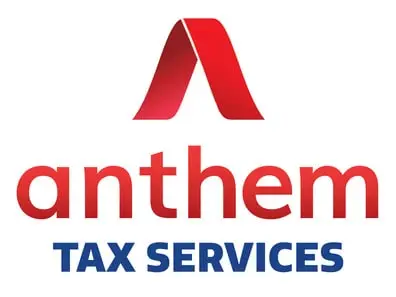
If you have taxes that have either partially or entirely unpaid during the year that you were due, you owe the IRS back taxes. When you owe back taxes, the IRS will apply penalties and the taxes will build interest, so paying them off as soon as you can is within your best interest. If you fail to pay off those back taxes, then they can take it even further by seizing assets instead and this is where tax debt relief is in your favor.
Can the IRS really seize assets if I owe back taxes?
The simple answer here is: yes. A lot of people who owe back taxes are surprised to find that their assets are being taken by repossession professionals after they have failed to pay them. All kinds of seizures by the IRS on back taxes are known as tax levies. Usually, property seizures are reserved for major issues like tax fraud, hiding assets, or other payroll tax issues, but that doesn’t mean that true asset seizures are unheard of or particularly uncommon when it comes to back taxes.
What can the IRS seize whenever you owe them back taxes?
If you’re worried about losing the house because you owe back taxes, that concern might have some legitimacy behind it. The truth is that the IRS can seize almost any kind of assets to your name if you owe them. Traditionally, they will start by seizing from your wages, and other liquid assets like bank accounts and retirement accounts. However, if you owe them a lot, they can seize almost anything, such as vehicles, furniture, valuable items, property, and they can even seize your passport.
A list of a variety of items that the IRS can legally seize includes (but is not limited to):
- Retirement account savings
- Savings account funds
- Life insurance policies
- Some government benefits
- All kinds of vehicles, including cars, RVs, motorcycles, ATVs, boats, and more
- Jewelry, especially those made using precious metals such as gold and silver
- Properties, including second homes and vacation homes
There are some limits to what the IRS can seize and will seize, however. Next, we’re going to look at some limitations on what they can seize, as well as what they will typically seize first.
Limitations on IRS back tax levies
As mentioned, levies that seize your assets, such as furniture, jewelry, vehicles, property, and the like are only reserved for very serious cases of tax misfilings and fraud. In most cases, the IRS will not seize these assets if you owe back taxes unless you owe a considerable amount. If you owe over $5,000, they may start coming after your assets. If you owe less than that, then you might instead be the target of wage garnishment (which we will talk about further down the article.
For most people, the most important question is: can IRS take your house for back taxes? In most cases, the answer is going to be ‘no’ if we’re talking about your primary residence. One of the biggest limits on what the IRS can take is that it cannot be essential and necessary for you and your family to survive from day-to-day. This means, amongst other things, they cannot take your primary residence, nor can they take the vehicle you use primarily for transporting to and from school and work.
In fact, the IRS can’t seize anything that would prevent you from working, going to school, or making your income. For instance, any tools, clothes, or supplies you might need for work are not going to be seized. While it’s not entirely out of the question, the IRS will typically avoid seizing unemployment benefits and welfare payments if you have no other income.
Lastly, the value of the items will dictate whether the IRS can seize them, too. For instance, they can’t seize furniture if it’s worth less than $7721 or any work tools that are valued at less than $3521. If your property or vehicle has no value and would have to go to auction, it would be returned to you, instead.
How IRS levies typically work?
As mentioned, the IRS will usually only seize your assets if your debts are big enough to justify them. If you owe them under $5,000 then they will typically try to reclaim the money owed through wage garnishment. Unlike most cases of a wage garnishment, the IRS does not have to seek a court order to do it. They have the authority to start garnishing your wages and at a higher rate than other creditors until your tax debt has been cleared entirely. You can pay what is owed to stop your wages from being garnished, but it only stops once the whole bill has been paid.
Even if you quit your job, have no employment, or are dismissed, you still have to repay your tax debt. If this happens, it may come out of your benefits. This typically first comes out of Social Security or worker’s compensation payments. Though the IRS typically avoids it, they may begin to seek a portion of your unemployment or welfare benefits if it is the only thing they can seize. They cannot seize any money that you may owe in child support or receive from Social Security disability payments, however.
Stop the IRS from seizing your assets
Simply put, the best way to prevent the IRS from taking your wages, your possessions, and from your savings accounts is to file and pay your taxes on time and completely. Where not possible, it’s best to get in touch with the IRS as soon as possible to advise them of the situation. In many cases, they can arrange a payment plan to help pay off your tax debt, this will allow you to make monthly payments to complete what you owe.
In some extreme cases, owing back taxes can even be forgiven, but this is rare, mostly reserved for those coping with high medical costs, terminal illness, death of an immediate family member, and the like.
It’s never a good idea to approach complex financial decisions without sound advice from people who really understand the choices you’re weighing. That’s why we are here to give you the resources to reach the best possible understanding with the IRS. If you need help setting up an installment agreement for new or previous tax years, contact Anthem Tax Services today to find out how you can pay off your tax debt overtime.
If you have taxes that have either partially or entirely unpaid during the year that you were due, you owe the IRS back taxes. When you owe back taxes, the IRS will apply penalties and the taxes will build interest, so paying them off as soon as you can is within your best interest. If you fail to pay off those back taxes, then they can take it even further by seizing assets instead and this is where tax debt relief is in your favor.
Can the IRS really seize assets if I owe back taxes?
The simple answer here is: yes. A lot of people who owe back taxes are surprised to find that their assets are being taken by repossession professionals after they have failed to pay them. All kinds of seizures by the IRS on back taxes are known as levies. Usually, property seizures are reserved for major issues like tax fraud, hiding assets, or other payroll tax issues, but that doesn’t mean that true asset seizures are unheard of or particularly uncommon when it comes to back taxes.
What can the IRS seize whenever you owe them back taxes?
If you’re worried about losing the house because you owe back taxes, that concern might have some legitimacy behind it. The truth is that the IRS can seize almost any kind of assets to your name if you owe them. Traditionally, they will start by seizing from your wages, and other liquid assets like bank accounts and retirement accounts. However, if you owe them a lot, they can seize almost anything, such as vehicles, furniture, valuable items, property, and they can even seize your passport.
A list of a variety of items that the IRS can legally seize includes (but is not limited to):
- Retirement account savings
- Savings account funds
- Life insurance policies
- Some government benefits
- All kinds of vehicles, including cars, RVs, motorcycles, ATVs, boats, and more
- Jewelry, especially those made using precious metals such as gold and silver
- Properties, including second homes and vacation homes
There are some limits to what the IRS can seize and will seize, however. Next, we’re going to look at some limitations on what they can seize, as well as what they will typically seize first.
Limitations on IRS back tax levies
As mentioned, levies that seize your assets, such as furniture, jewelry, vehicles, property, and the like are only reserved for very serious cases of tax misfilings and fraud. In most cases, the IRS will not seize these assets if you owe back taxes unless you owe a considerable amount. If you owe over $5,000, they may start coming after your assets. If you owe less than that, then you might instead be the target of wage garnishment (which we will talk about further down the article.
For most people, the most important question is: can IRS take your house for back taxes? In most cases, the answer is going to be ‘no’ if we’re talking about your primary residence. One of the biggest limits on what the IRS can take is that it cannot be essential and necessary for you and your family to survive from day-to-day. This means, amongst other things, they cannot take your primary residence, nor can they take the vehicle you use primarily for transporting to and from school and work.
In fact, the IRS can’t seize anything that would prevent you from working, going to school, or making your income. For instance, any tools, clothes, or supplies you might need for work are not going to be seized. While it’s not entirely out of the question, the IRS will typically avoid seizing unemployment benefits and welfare payments if you have no other income.
Lastly, the value of the items will dictate whether the IRS can seize them, too. For instance, they can’t seize furniture if it’s worth less than $7721 or any work tools that are valued at less than $3521. If your property or vehicle has no value and would have to go to auction, it would be returned to you, instead.
How IRS levies typically work?
As mentioned, the IRS will usually only seize your assets if your debts are big enough to justify them. If you owe them under $5,000 then they will typically try to reclaim the money owed through wage garnishment. Unlike most cases of a wage garnishment, the IRS does not have to seek a court order to do it. They have the authority to start garnishing your wages and at a higher rate than other creditors until your tax debt has been cleared entirely. You can pay what is owed to stop your wages from being garnished, but it only stops once the whole bill has been paid.
Even if you quit your job, have no employment, or are dismissed, you still have to repay your tax debt. If this happens, it may come out of your benefits. This typically first comes out of Social Security or worker’s compensation payments. Though the IRS typically avoids it, they may begin to seek a portion of your unemployment or welfare benefits if it is the only thing they can seize. They cannot seize any money that you may owe in child support or receive from Social Security disability payments, however.
Stop the IRS from seizing your assets
Simply put, the best way to prevent the IRS from taking your wages, your possessions, and from your savings accounts is to file and pay your taxes on time and completely. Where not possible, it’s best to get in touch with the IRS as soon as possible to advise them of the situation. In many cases, they can arrange a payment plan to help pay off your tax debt, this will allow you to make monthly payments to complete what you owe.
In some extreme cases, owing back taxes can even be forgiven, but this is rare, mostly reserved for those coping with high medical costs, terminal illness, death of an immediate family member, and the like.
It’s never a good idea to approach complex financial decisions without sound advice from people who really understand the choices you’re weighing. That’s why we are here to give you the resources to reach the best possible understanding with the IRS. If you need help setting up an installment agreement for new or previous tax years, contact Anthem Tax Services today to find out how you can pay off your tax debt overtime.


